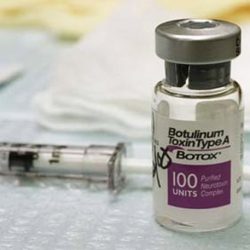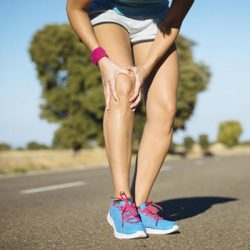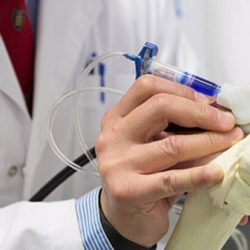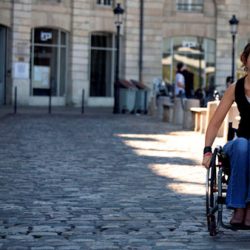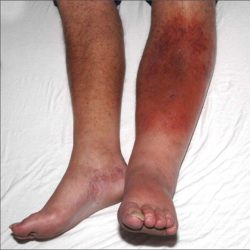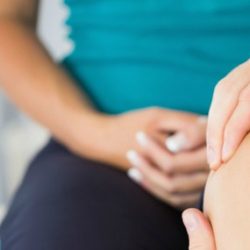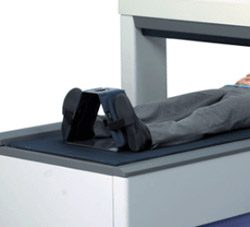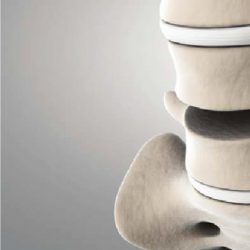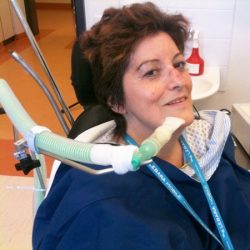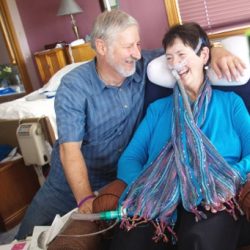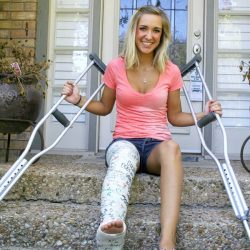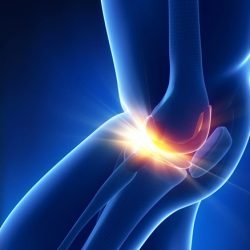Osteoporosis drugs have significantly reduced the risk of bone fractures for millions of people, but also have been linked to unusual fractures of the femur (thigh bone). In a review article in the journal Current Geriatrics Reports, orthopedic surgeons describe the latest findings for treating these injuries, called atypical femur fractures. The article is written by … [Read more...]
Orthopedics

Botulinum toxin injection and physiotherapy can cure Knee Pain: Imperial College London Study
A painful knee condition that affects more than one in eight active people has been treated effectively with a botulinum toxin injection and physiotherapy. Researchers from Imperial College London and Fortius Clinic carried out a trial involving 45 patients with what they term lateral patellofemoral overload syndrome. Sufferers, often runners and cyclists, experience pain in … [Read more...]
Treatments that reduce knee buckling: A Study
Symptoms of knee instability in older adults may indicate an increased risk of falling and of experiencing the various physical and psychological effects that can result from falling, according to a study published in Arthritis Care & Research, a journal of the American College of Rheumatology (ACR). The findings indicate that determining effective treatments for knee … [Read more...]
Increase in number of total knee replacement surgeries linked to obesity: A Study
The number of total knee replacement (TKR) surgeries more than tripled between 1993 and 2009, while the number of total hip replacements (THR) doubled during the same time period. A study appearing in the June Journal of Bone and Joint Surgery (JBJS) found that an increase in the prevalence of ovrweight and obesity in the U.S. accounted for 95 percent of the higher demand for … [Read more...]
Calcium phosphate can coax stem cells to become bone-building cells: University of California Study
With the help of biomimetic matrices, a research team led by bioengineers at the University of California, San Diego has discovered exactly how calcium phosphate can coax stem cells to become bone-building cells. This work is published in the Proceedings of the National Academy of Sciences the week of Jan. 6, 2014. UC San Diego Jacobs School of Engineering professor Shyni … [Read more...]
Protein found that improves mobility after spinal cord injuries: A Spanish Study
Spinal cord injuries cause severe functional disabilities in those who sustain them, including paraplegia or tetraplegia, depending on the scale of the injury. This is due to the degeneration of the spinal pathways that carry nerve signals from the brain to the different parts of the body and vice versa, resulting in loss of mobility and sensitivity underneath the injured area. … [Read more...]
Vitamin B12 and taurine regulates the production of new bone cells: A Study
Researchers have uncovered a previously unknown biological process involving vitamin B12 and taurine that regulates the production of new bone cells. This pathway could be a potential new target for osteoporosis treatment. In humans it is well known that vitamin deficiencies lead to stunted growth, but the underlying mechanisms have long been a mystery. In this study, the … [Read more...]
New Guidelines for treatment of VTE disease: A Study
Each year, there are approximately 10 million cases of venous thromboembolism (VTE) worldwide. VTE, the formation of blood clots in the vein, is a dangerous and potentially deadly medical condition and is a leading cause of death and disability worldwide. In this latest evidence-based guideline, Antithrombotic Therapy for VTE Disease: CHEST Guideline, from the American College … [Read more...]
Boosting vitamin D could slow progression, reduce severity of multiple sclerosis: A Study
For patients in the early stages of multiple sclerosis (MS), low levels of vitamin D were found to strongly predict disease severity and hasten its progression, according to a new study led by Harvard School of Public Health (HSPH) investigators in collaboration with Bayer HealthCare. The findings suggest that patients in the early stages of MS could stave off disease symptoms … [Read more...]
Hormone replacement therapy cuts risk of repeat knee/hip replacement surgery by 40 percent:
Hormone replacement therapy (HRT) taken regularly for six months after a knee or hip replacement seems to cut the risk of repeat surgery by around 40%, indicates a large population based study published online in the Annals of the Rheumatic Diseases. National data for England and Wales indicate that more than 2% of procedures typically have to be repeated within three years, … [Read more...]
Guidelines for surgical treatment of osteoarthritis of the knee released: American Academy of Orthopaedic Surgeons
The American Academy of Orthopaedic Surgeons (AAOS) has introduced a new clinical practice guideline (CPG) for adults undergoing surgery to improve motion and relieve pain caused by osteoarthritis of the knee. The guidelines focus on the surgical procedure most commonly performed for this condition, total knee replacement (TKR). "Total knee replacement is a safe and … [Read more...]
Same Day Joint Replacement
Joint replacement surgery used to require a week-long stay in the hospital, and a long painful recovery. Not so any more. Enhanced recovery means walking into the hospital one morning, and walking out the next, with a new hip. Six months ago, after getting a total hip replacement, Dallas realtor Mary Cotroneo left the hospital the very next day and was back at work within … [Read more...]
Playful Pets: Watch Out for Injuries
If you’re one of the 80 million people who own a dog in America, all the fun you have with your pet could be dangerous. You may not love playing fetch with a ball or toy as much as your dog does, but that time spent together may spell more than just good exercise. It may sound funny, but injuring your hand or wrist is anything but. Tom Demas was teaching his dog, scout, how … [Read more...]
Bone-healthy diets throughout life help to protect against osteoporosis in old age: International Osteoporosis Foundation Study
Whether you're young or old, the right nutrition can make a difference to your bone health and influence your ability to live an independent, mobile, fracture-free life into your more senior years. That's the key message of a new scientific review published in the journal Osteoporosis International by leading bone and nutrition experts, in anticipation of World Osteoporosis Day … [Read more...]
Motivation promotes recovery after spinal cord injury: A Study
It is known by clinical experiences that motivation enhances patients' recovery from spinal cord injury or stroke. Depressive symptoms of the patients suffering from such brain injury could be a factor to delay functional recovery. However, there has been no neuroscientific evidence how motivation affects the patients' recovery of motor function in rehabilitation. Here, the … [Read more...]
Gene identified that determines bone density and fracture risk: A Study
Researchers from Harvard-affiliated Hebrew SeniorLife Institute for Aging Research (IFAR), in collaboration with scientists from a number of international institutes, have identified a genetic variant regulating a gene responsible for bone mineral density and fracture risk. Findings from this study--funded in part by grants from the National Institutes of Health (NIH)--are … [Read more...]
Molecule made by muscle shown for first time to build bone: An Italian Study
A recently identified molecule produced by skeletal muscle in response to exercise, has been shown to increase bone mass, according to a collaborative study between researchers at the Mount Sinai Bone Program, Icahn School of Medicine at Mount Sinai, the Department of Experimental and Clinical Medicine at University of Ancona in Italy, and the Department of Basic Medical … [Read more...]
Artificial Disc Replacement
Even though most back problems get better on their own, about 600,000 Americans opt for surgery every year. Spinal fusion is the most common approach, but more and more people are choosing another technique. When 35-year-old Gara Little plays soccer with her four-year-old son now she does so almost pain free, which is a huge improvement from a few years ago. Little told … [Read more...]
Veterans with muscle injuries and mental health conditions more likely to end service: University of Michigan Study
Sixty percent of U.S. Army soldiers who were unable to return to a military career after an Iraq deployment couldn't do so because of a muscle, bone or joint injury and nearly half had a mental health diagnosis, according to a new study from the University of Michigan and VA Ann Arbor Healthcare System. Lower rank, which indicated socioeconomic status, was also a predictor … [Read more...]
Diabetes drug boosts bone fat, fracture risk but exercise can partially offset the effect: University of North Carolina Study
Inside our bones there is fat. Diabetes increases the amount of this marrow fat. And now a study from the UNC School of Medicine shows how some diabetes drugs substantially increase bone fat and thus the risk of bone fractures. The study, published in the journal Endocrinology, also shows that exercise can decrease the volume of bone fat caused by high doses of the diabetes … [Read more...]
Growth hormone reduces risk of osteoporosis fractures in older women: The Endocrine Society Study
For years after it was administered, growth hormone continued to reduce the risk of fractures and helped maintain bone density in postmenopausal women who had osteoporosis, according to a new study published in the Endocrine Society's Journal of Clinical Endocrinology & Metabolism. Osteoporosis is a progressive condition that causes the bones to become weak and more … [Read more...]
ALS progression linked to increased protein instability: A Study
A new study by scientists from The Scripps Research Institute (TSRI), Lawrence Berkeley National Laboratory (Berkeley Lab) and other institutions suggests a cause of amyotrophic lateral sclerosis (ALS), also known as Lou Gehrig's disease. "Our work supports a common theme whereby loss of protein stability leads to disease," said John A. Tainer, professor of structural … [Read more...]
Burst spinal artery aneurysm linked to Ecstasy use: A Study
Taking the street drug Ecstasy could lead to a potentially fatal weakening and rupture of the spinal cord artery, doctors have warned in the Journal of NeuroInterventional Surgery. Posterior spinal artery aneurysms -- a blood-filled swelling of the spinal cord artery, caused by a weakening and distension of the vessel wall -- are rare, with only 12 cases reported to date. … [Read more...]
New ALS associated gene identified: University of Massachusetts Study
Using an innovative exome sequencing strategy, a team of international scientists led by John Landers, PhD, at the University of Massachusetts Medical School has shown that TUBA4A, the gene encoding the Tubulin Alpha 4A protein, is associated with familial amyotrophic lateral sclerosis (ALS), a fatal neurological disorder also known as Lou Gehrig's Disease. Details of the study … [Read more...]
ALS is a protein aggregation disease: A Cornell University Study
Using a technique that illuminates subtle changes in individual proteins, chemistry researchers at Cornell University have uncovered new insight into the underlying causes of Amyotrophic Lateral Sclerosis (ALS). Brian Crane, professor of chemistry and chemical biology, led one study and co-authored a follow-up on a spectroscopic method that detects subtle changes to … [Read more...]
Activity level may predict orthopedic outcomes: American Academy of Orthopaedic Surgeons Study
According to a literature review in the July issue of the Journal of the American Academy of Orthopaedic Surgeons (JAAOS), patients' activity level is a strong predictor for how well they will do with certain treatments and how well they recover from injuries after treatment. Patients are encouraged to ask their orthopaedic surgeon if activity level is an important factor in … [Read more...]
Fluorescent probe tracks osteoarthritis development: A Tufts University Study
A fluorescent probe may make it easier to diagnose and monitor osteoarthritis, a painful joint disease affecting nearly 27 million Americans. The disease is often detected late in development after painful symptoms occur. Earlier diagnosis might lead to better management and patient outcomes. A new study reports that a fluorescent probe tracked the development of osteoarthritis … [Read more...]
After years of debilitating leg pain, spinal stenosis patient finds instant relief: A Loyola University Study
Every morning, the pain shooting down Donna Togliatti's right leg was so intense that it was a struggle just to walk to the kitchen and make a cup of coffee. Mrs. Togliatti had spinal stenosis, a narrowing of the space inside her spine that caused pressure on her nerves. "The pain was there all the time, but was more intense in the morning," she said. Mrs. Togliatti had … [Read more...]
Novel Chinese herbal medicine JSK improves spinal cord injury: A Study
A new study published in Restorative Neurology and Neuroscience demonstrates that Chinese herbal medicine Ji-Sui-Kang (JSK), given systemically for three weeks after injury in rats, improved locomotor function, reduced tissue damage, and preserved the structure of neural cells compared to control rats. The report also includes data showing that JSK may first act to reduce … [Read more...]
Body mechanics key to avoiding and relieving chronic lower back pain: A Study
If you want to steer clear of lower back pain, remember this: Arch is good, flat is bad. Back pain is anything but rare; only headaches and colds are more common. According to the National Institute of Neurological Diseases and Stroke, Americans spend more than $50 billion each year on lower back pain, which is the No. 1 cause of job-related disability in the country and one of … [Read more...]
- « Previous Page
- 1
- 2
- 3
- 4
- …
- 11
- Next Page »

